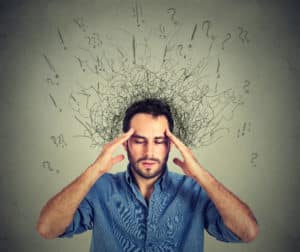When an individual is affected by mental health issues, it can impact close family members and friends. Starting an inpatient or outpatient mental health treatment program might be a substantial step toward managing that condition, but how can you strengthen family ties and do away with the confusion or pain that family members might feel?
This is the role of family mental health recovery plans. Contact our Pennsylvania mental health treatment center today to learn more about PHP mental health care.
Who Attends Family Mental Health Treatment?
Family mental health recovery takes the form of group therapy sessions. Included in those sessions are any number of family members, whether they live with you or far away. Some examples include:
- Parents
- Children
- Spouses
- In-laws
- Siblings
- Stepfamilies
- Foster families
- God families
- Friends
- Mentors
- Honorary family members
Not everyone may want to participate. Family members respond differently to an individual admitting they have a mental health disorder or getting help. If certain family members don’t want to participate, they shouldn’t be forced to do so. Those family members willing to step out of their comfort zone and participate can still make a profound difference in improved family relationships, connection, and mental health.
Goals of Family Mental Health Treatment
If you start mental health treatment, you’ll work with your team of care providers to establish goals you want to accomplish during your treatment. Goals should include strengthening emotional bonds between everyone and objectives specific to your family’s needs. Similarly, if you start family mental health treatment, you’ll also need to develop goals that provide everyone with the right kind of support and recovery.
As you move through your family therapy sessions, your objectives might change as your family decides they have met certain goals and want to replace them with new ones. Some examples can include the following:
- Substituting feelings of guilt within family members for forgiveness: Some family members might feel guilty about how they have treated you and how they responded to your mental health symptoms, and removing that guilt requires forgiveness
- Substituting despair with hope: Some family members might feel despair over your situation, especially if you are diagnosed with a life-long mental health disorder like bipolar disorder. But your family treatment can imbue hope by providing educational resources on how that condition can be effectively managed
- Substituting stress with strength: Dealing with mental health disorders and getting treatment can lead to a great deal of stress or frustration. Often this is associated with a lack of understanding or education. Resources provided during family therapy can give a better understanding and improve strength within your family dynamics
What is the Role of Family in Mental Health?
Family mental health treatment is a type of therapy that involves different members of the family. It is centered on the idea that families function as a related system, so any change to one family member will affect all the others. Behavioral changes because of mental health issues can cause harm to family dynamics. Some examples include the following:
- In some cases, individuals struggle with lies or secrets, and that can take a toll on all the other family members
- In some cases, one family member might take on too much responsibility in trying to help an individual with mental health disorders, which can cause burnout, emotional distress, or PTSD
- In other cases, some family members might act out in response to an individual admitting they have mental health problems or getting help
- In other cases, some family members might shut down, stop communicating with their loved one, or maintaining an emotional bond over the mental health issues
Changing Unhealthy Patterns
These examples represent unhealthy patterns that can develop within family dynamics if one family member has a mental health disorder. The role of family in mental health treatment serves two purposes:
- First, to provide ongoing support for the individual who is brave enough to get help
- Second, to provide education and support for family members so that they can facilitate positive changes alongside the individual receiving treatment
When to Start Family Mental Health Treatment
Given the two purposes associated with the role of family in mental health treatment, it’s important to consider starting your family therapy at the appropriate time.
If you are seeking help for a coexisting addiction and mental health disorder, you will need to focus first on your initial detox and the first few stages of your recovery by working with an individual therapist. With an unbalanced family system, but family members are willing to participate in therapy, that’s something to consider integrating into your recovery plan after the first few weeks of treatment when you are stable.
If you have already completed mental health treatment or are starting mental health treatment without a coexisting substance abuse disorder, you might want to start family therapy to help you stabilize your healthier lifestyle, to provide education for your family on how your condition works and what they can do to best support you.
To learn more about the role of family in mental health and family mental health treatment, Water Gap Wellness Center can answer your questions. We are a premier mental health treatment center offering multiple levels of care and treatment modalities, including family therapy.
Contact Water Gap Wellness Center to start your family mental health treatment today. Water Gap Wellness Center is an outpatient mental health treatment center near New Jersey.




